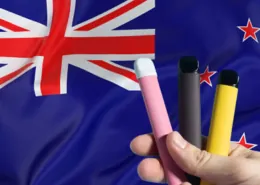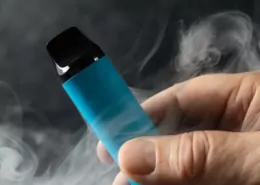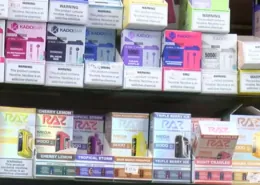Bangladesh to Ban Vapes, E-Cigarettes Under Stricter Tobacco Ordinance
The interim government of Bangladesh is set to enact a new ordinance with stricter tobacco control measures, primarily targeting the sale and use of vapes and e-cigarettes. The draft ordinance, titled “The Smoking and Use of Tobacco Products (Control) Ordinance, 2024,” also includes provisions banning loose cigarettes, bidis, and chewing tobacco (zarda). The ordinance is set to be presented for approval during the Advisory Council meeting on Thursday (24 October).
Vapes and E-Cigarettes Face Strict Regulations
Under the proposed ordinance, the manufacture, import, export, storage, advertisement, and sale of electronic nicotine delivery systems, heated tobacco products, and oral nicotine pouches will be prohibited. This ban does not apply to nicotine therapy prescribed by a registered physician. Anyone found selling e-cigarettes and vapes will face a fine of Tk5,000.
The draft ordinance also extends the prohibition on smoking and the use of tobacco products to all types of restaurants, eateries, coffee shops, and other premises, as well as non-motorised vehicles like rickshaws and vans. It also bans the depiction of tobacco use or electronic nicotine delivery systems on television, radio, the internet, stage programmes, and other media.
Other Key Provisions of the Draft Ordinance
In addition to the ban on vapes and e-cigarettes, the draft ordinance includes several other significant changes to the existing tobacco control laws:
- Shopkeepers selling tobacco products, including cigarettes, will require a licence, and those found selling without one will face penalties of TK50,000.
- The sale of tobacco products will be prohibited within 100 metres of schools, hospitals, clinics, sports venues, and children’s parks.
- Anyone selling loose cigarettes will face a fine of Tk5,000.
- The fine for smoking or using tobacco products in public places will increase from Tk300 to Tk1,000.
- Tobacco products, including cigarettes, cannot be sold at mobile shops or by hawkers.
- No sweeteners, spices, flavours, or colours will be permitted in tobacco products.
Violations of this law may result in monetary fines as well as imprisonment for varying durations, with penalties doubling for repeat offences.
Potential Impact on Public Health and Opposition from Tobacco Companies
Anti-tobacco organisations believe that the passage of this law could lead to a decrease in tobacco-related deaths. ABM Zubair, executive director of PROGGA, a non-profit organisation advocating for tougher tobacco control, stated, “Every year, 161,000 people die due to tobacco usage. If the Ministry of Health’s proposed ordinance is passed without changes, it could reduce fatalities. That’s why we advocate for the ordinance’s approval.”
However, tobacco companies, including British American Tobacco (BAT) Bangladesh and Japan Tobacco International (JTI), have expressed their opposition to the draft ordinance. BAT Bangladesh sent letters to various advisers in the interim government, claiming that some clauses in the draft ordinance are unenforceable and fail to consider the country’s overall context. The company has suggested that the draft should be revised again based on stakeholder feedback.
- Cambodia: Phnom Penh Bans Smoking & Vaping on “Walk Street” - August 16, 2025
- Mexico City Congress Approves Ban on Vapes & E-Cigs - August 16, 2025
- Is It Illegal to Vape or Smoke While Driving in Minnesota? - August 15, 2025







